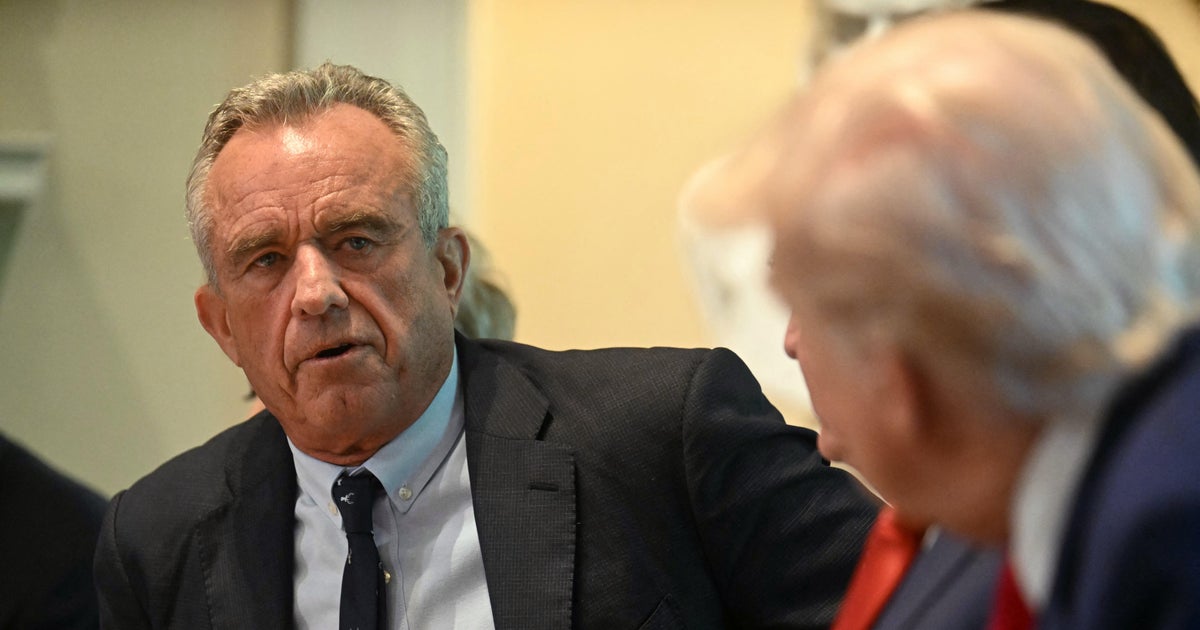In a strategic maneuver imbuing his administration with qualified professionals who echo his vision for a healthier America, President Donald Trump has announced his intent to nominate Dr. Casey Means as the next U.S. Surgeon General. This impactful decision comes alongside his team’s endeavor to promote a robust health-oriented agenda, a pledge significantly supported by his close ally, Health and Human Services Secretary Robert F. Kennedy Jr.
Dr. Casey Means is set to replace Dr. Janette Nesheiwat, who recently had her nomination withdrawn amidst controverted opinions concerning her qualifications, a mere day before her Senate confirmation hearing was scheduled. The announcement of Dr. Means’ nomination was made by President Trump himself, through a post on Truth Social, where he praised her exceptional “MAHA – Make America Healthy Again” credentials, an agenda strongly advocated by Kennedy.
Dr. Casey Means is not just another name in the long list of medical professionals. Her career trajectory boasts an impeccable blend of academic prowess and practical health solutions focused on the root causes of illness rather than just their symptoms. After completing her education at Stanford Medical School, she took an unconventional path for a medical doctor; she shifted away from traditional medical practices to focus on preventive health care. Dr. Means espouses a philosophy that addresses why certain health conditions are prevalent in Americans and seeks innovative ways to tackle these issues from the ground up.
Her professional repertoire includes co-founding Levels, a pioneering health app that integrates with glucose monitors, helping thousands manage their dietary health more effectively. Her influence extends beyond her medical initiatives, as she has cultivated a substantial online following, sharing insights on health and wellness that align with more natural and preventative approaches to health management.
Dr. Means, along with her brother Calley Means—who played a crucial role in securing Kennedy’s endorsement of their shared health-centric visions—has been at the vanguard of a movement that critiques the pervasive influence of the food and pharmaceutical industries on public health. Their joint ventures in the health and wellness domain gained substantial traction after the success of their bestselling book “Good Energy”, which they authored following their mother’s ordeal with pancreatic cancer. The Means siblings argue that too often, patients are cycled through a regimen of prescriptions without adequate exploration into the interconnectedness of health conditions or the potential reversibility of their ailments through holistic approaches.
This perspective was prominently shared in a widely circulated interview with Tucker Carlson, which Apple ranked as the most-shared podcast episode in 2024. The episode, titled “The Truth About Ozempic, the Pill, and How Big Pharma Keeps You Sick,” sheds light on their stance against what they perceive as the pharmaceutical industry’s role in perpetuating patient dependency on medication without curing underlying health issues.
Reflecting on Dr. Means’ nomination, Dr. Robert Malone, another prominent figure and ally of Kennedy, endorsed her by highlighting her qualifications, communicative effectiveness, and ethical integrity—all crucial attributes for the role of the Surgeon General. He commented on her capacity to usher in a new era of health awareness that aligns seamlessly with the current objectives of the Health and Human Services Department under Kennedy’s leadership.
Despite the enthusiasm surrounding her nomination, some skepticism remains, particularly among Kennedy’s anti-vaccine base. These individuals have grown wary of Kennedy’s apparent shift from vaccine criticisms to broader dietary and health safety issues, such as the advocacy against synthetic food dyes. However, Dr. Malone acknowledged that while nutrition forms a core aspect of MAHA, the shift does not negate the need for continued advocacy on other health fronts, including vaccine safety, a topic Dr. Means herself has spoken passionately about. She has publicly voiced her concerns regarding vaccine mandates and the need for rigorous safety evaluations, especially in vulnerable populations.
Dr. Means’ nomination comes at a time when the health landscape of America is ever-evolving, with public health challenges like dietary-induced illnesses taking center stage. Her holistic and preventive approach to medicine, combined with her solid academic background and public health advocacy, positions her as a potentially transformative U.S. Surgeon General. If confirmed by the Senate, her leadership could herald a new chapter in tackling the root causes of American health issues, steering the public towards a healthier future.
Meanwhile, the withdrawn nomination of Dr. Janette Nesheiwat serves as a reminder of the intricate and sensitive nature of such high-profile appointments. Despite her demonstrated media savviness and her appearances on major networks like Fox News, questions about her actual credentials and the influence of political connections, including her ties to former national security adviser Mike Waltz, pointed to potential biases and misrepresentations that ultimately led to her nomination’s rescission.
The unfolding developments around the Surgeon General nomination not only reflect the dynamics of political alliances and healthcare ideologies but also underscore the critical importance of transparency, competency, and aligned vision in the leadership roles crucial to shaping the nation’s health policies. As the Senate gears up for Dr. Means’ confirmation hearings, the discourse surrounding her perspectives on health maintenance and disease prevention will undoubtedly influence not just her confirmation but also the future directions of national health policy under the Trump administration.









